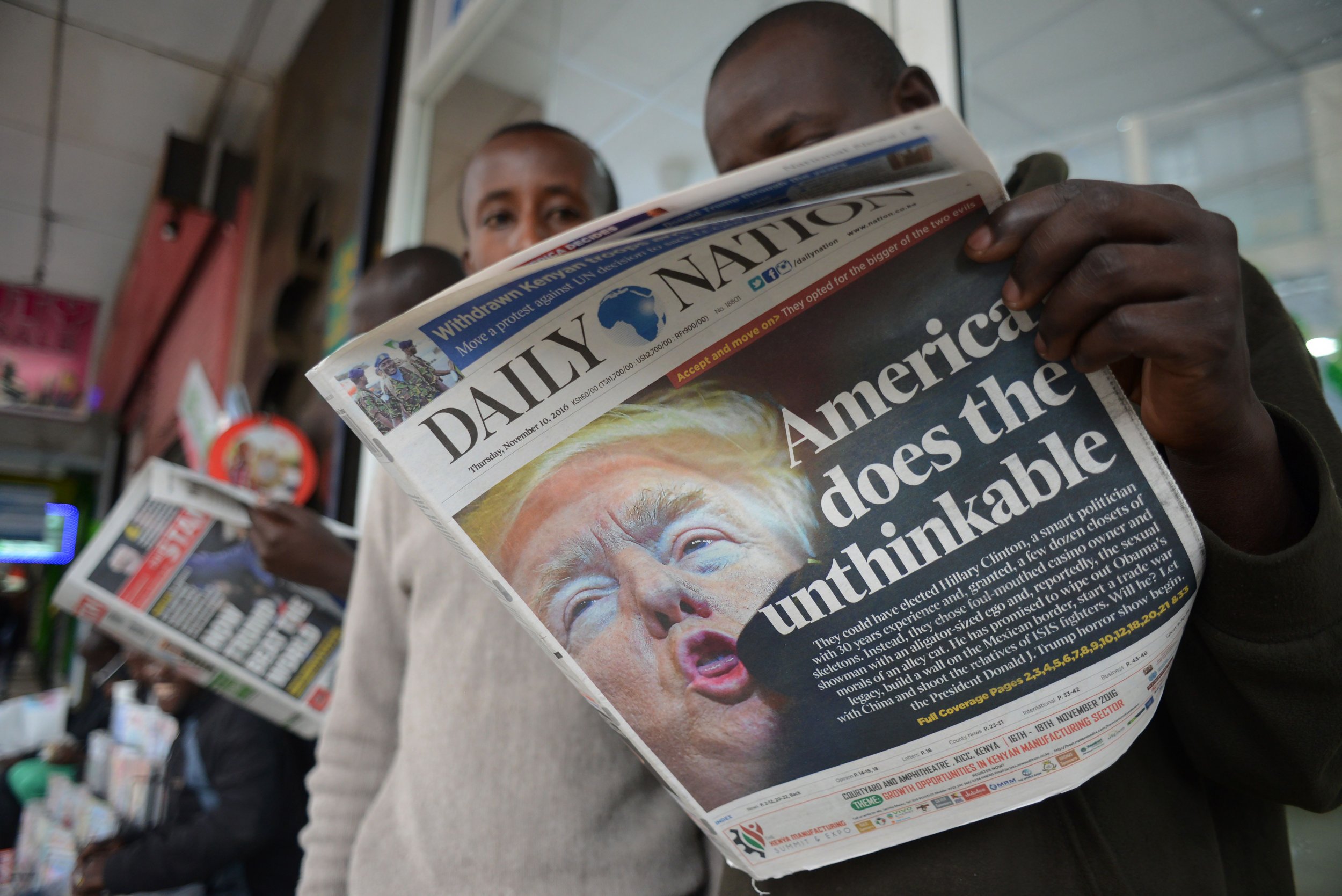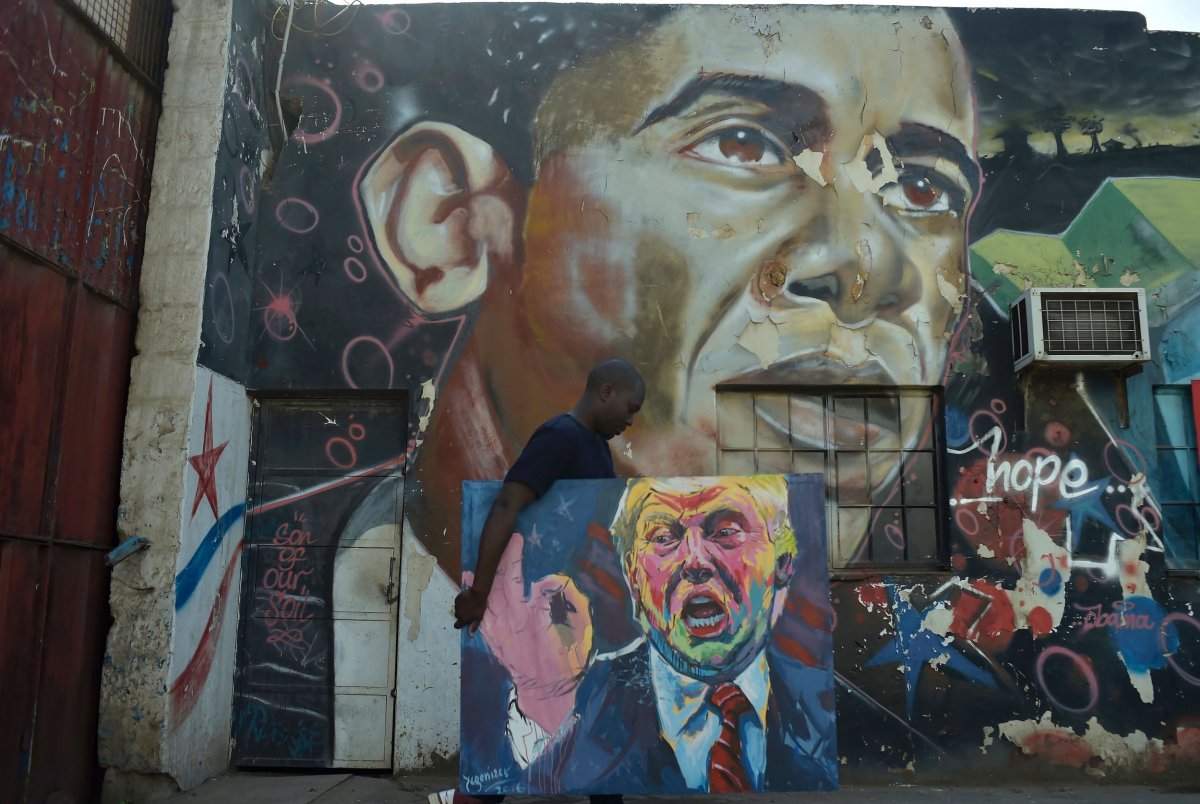
The United States under President Donald Trump will still have an Africa policy. This goes against the popular view that an inward-looking Trump administration will ignore African countries and make it easier for African governments to pivot towards other partners, such as China and neighboring African countries.
Regardless of a lack of interest in a particular region at the presidential level, the United States' historical role as the center of global diplomacy and the day-to-day workings of the U.S. bureaucracy mandates the development of an African strategy.
The new administration would have to make decisions on whether to sustain previous executive programs—such as President Barack Obama's Power Africa initiative, aimed at doubling electricity access across sub-Saharan Africa; and the President's Emergency Plan for AIDS Relief (PEPFAR), which has provided treatment to 11.5 million people since being initiated by George W. Bush—many of which have received bipartisan support through several presidential administrations.
The administration will also need to decide on what new programs to encourage, if any. Now, therefore, is the time for those with interests in a robust U.S.-Africa policy to put forth ideas and engage with incoming officials.
Trump administration policymakers should keep three principles in mind when thinking about how to approach an agenda for Africa. First, millions of Africans, just like millions of Americans, are working hard every day to pull themselves up by their own bootstraps, so policy must ensure that those bootstraps are within reach. Second, the new administration should ensure that its policies advance American competitiveness in African markets. And third, U.S. policies should be oriented towards enabling business and investment as tools for mutually beneficial economic development.

As a Democrat who has worked with administrations of both parties over the past 12 years, I recommend the following policy proposals that build on business ties and advance U.S. interests in Africa for consideration:
1. Utilize the United States' strength in global finance for development
The United States and African countries should establish a roundtable on financial inclusion that will coordinate and sustain engagement around the development of the banking, venture capital, private equity, and capital markets in African economies. The United States has five of the world's top 10 financial centers and American investment players dominate capital markets.
Attracting the best talent globally, Wall Street and the venture industry of Silicon Valley can play a critical role in developing African capital markets, putting capital in the hands of striving African entrepreneurs and financing the expansion of American companies in Africa's fast growing and larger markets. A financial inclusion round table would also allow the United States to achieve deeper engagement with South Africa, which has the most advanced financial system and densest corporate concentration on the continent.
The McKinsey Global Institute found that 700 firms in Africa have revenue of more than $500m and 400 firms have revenue of more than $1bn—and half of these firms are in South Africa.
2. Strengthen U.S. agencies that catalyse private investment
The Overseas Private Investment Corporation (OPIC) is the U.S. government's development finance institution and plays a leading role in catalyzing investment into African markets. The Trump administration should sustain and expand its mandate: OPIC helps U.S. companies enter and insure against risk in African markets and has operated at no net cost to U.S. taxpayers throughout its entire history.
This small, nimble organization should be given more resources and a mandate that includes making equity investments in U.S.-tied entities with interests in developmentally important sectors in African markets.
3. Support African countries on cybersecurity efforts
Cybersecurity is becoming increasingly important, and the U.S. is a global leader. A worldwide survey commissioned by Raytheon found that the percentage of private and public-sector leaders who consider robust cybersecurity systems to be a source of competitive advantage would likely double from 25 to 51 percent between 2015 and 2018.
Creating a cybersecurity infrastructure is a particular priority for the financial sector and the government offices that regulate it. In February, hackers were able to steal $81m by breaking into the Bangladeshi Central Bank's computer system and using it to send fraudulent messages to the New York Federal Reserve. Many African central banks are equally vulnerable, and a single hack could be devastating for development. U.S. companies can help prevent this and the U.S. Export-Import Bank should set up a dedicated facility to promoting and facilitating the partnerships that will allow these critical services to reach vulnerable African markets.
4. Create a major U.S.-Africa higher education initiative
Education is one of the cheapest forms of international diplomacy and another source of the United States' competitive advantage. While previous generations in Africa have sent their brightest students to study in U.S. institutions—including through the famous Kennedy Administration's Airlift to America, which brought President Barack Obama's father to the United States—more and more African countries are looking to Chinese universities for educational opportunities.
China has begun to offer thousands of scholarships and study programs to promising African students: in late 2015, President Xi Jinping announced that China would provide 30,000 government scholarships for African students, with the goal of strengthening cooperation with the continent. If the United States loses its hold on university programs for Africans, it loses the ability to infuse a new generation of African leaders with American values.
This in turn puts U.S. companies at a long-term disadvantage. Bringing elite African students to the United States and mandating that they return home after finishing their studies creates a readymade base for strong relationships with future political and business leaders in Africa, helping U.S. companies to do business in the region.
Given the transformation seen in African markets over the past 15 years, it is critical that the United States maintains a strong footing in the region and build on the uniquely-bipartisan progress made in U.S.-Africa policies to date. To refuse to engage with the new administration based on preconceived notions of indifference toward African countries is a mistake of the first order.
Aubrey Hruby is an Africa investment advisor and a Senior Fellow at the Atlantic Council.
Uncommon Knowledge
Newsweek is committed to challenging conventional wisdom and finding connections in the search for common ground.
Newsweek is committed to challenging conventional wisdom and finding connections in the search for common ground.
About the writer
To read how Newsweek uses AI as a newsroom tool, Click here.








